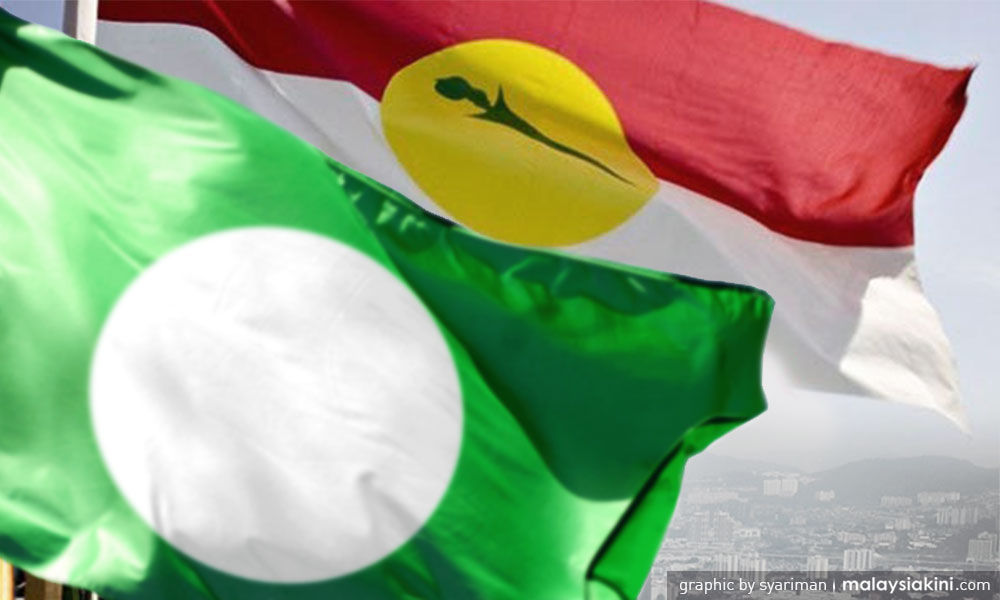
MP SPEAKS | In Part 1 of this series, I drew attention to the convergence of five factors creating a condition primed for the “perfect storm” of ethnic conflict.
In this Part 2, I caution that the Bersatu-Umno/PAS contention for Malay supremacy in the prevailing politically charged atmosphere may push ethnic-religious tensions beyond the tipping point, triggering ethnic strife, hostilities or worse, conflict.
In Part 3, I suggest that in order to pull the masses away from political entrepreneurs using the “race and religious cards” to mobilise support, the Pakatan Harapan government must deliver tangible economic results and counter the Umno/PAS narrative on racial politics. This is by exposing the myth of race and to rebuild Malaysia as a shared society. There is no other alternative.
In contending for Malay support, Dr Mahathir Mohamad accepted Umno defectors into Bersatu. He called on the Malays to trust Bersatu to save them and bring them success. He said he remains unapologetic for his defence of Malay rights even if this means being called a racist. These efforts did not yield the desired results.
On the other hand, the Umno/PAS message found resonance among the Malays. They have embarked upon a strategy of whipping up racial hatred, widening social fragmentation, ratcheting-up ethnic and religious intolerance and legitimising racial discrimination.
The Umno/PAS message to the Malays has hit home. A survey by Ilham Centre and think-tank Penang Institute found that 54.4 percent of the Malay respondents do not believe the Harapan government is serious about the bumiputera agenda, including upholding Malay rights and Islam as the official religion.
The same survey found that more than 60 percent believed that non-Muslims now control the government and DAP is calling the shots in Putrajaya. This survey shows the deepening of ethnic cleavages. The Malay respondents have accepted the classification and symbolisation of distinguishing Malays and non-Malays into “Us versus Them.”
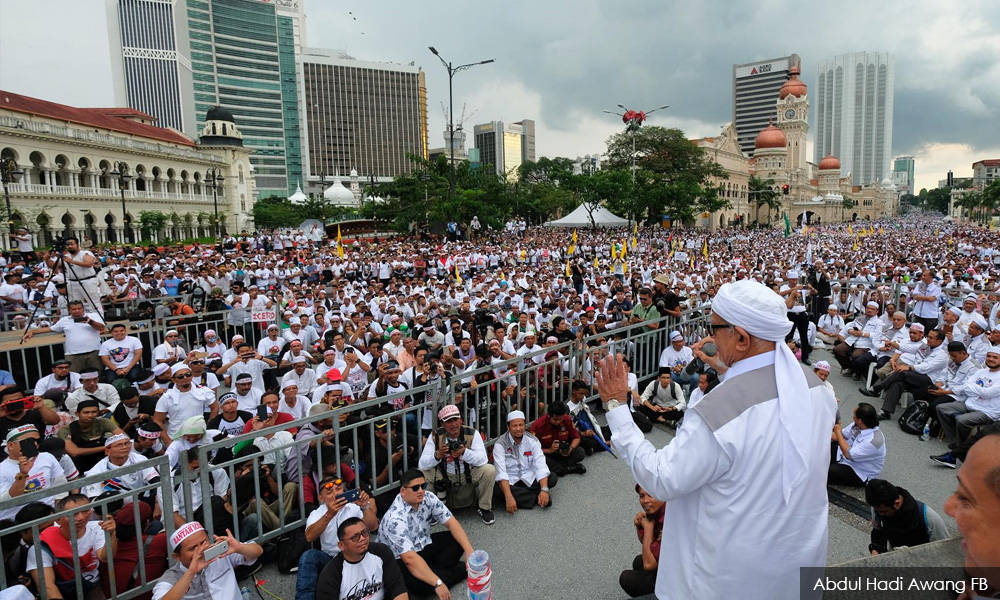
In demanding the withdrawal of Icerd, Umno/PAS led thousands to drop all pretensions that the NEP and the bumiputera agenda are affirmative action policies. (Affirmative action policies are allowed under Icerd.) By protesting against Icerd, they thus acknowledge that the versions of the NEP and bumiputera agenda they want are racially discriminatory policies.
While the whole world condemns racial prejudice and discrimination and supports the universal right of men and women to a life of dignity and freedom, Umno/PAS brazenly advocate and legitimise racial discrimination. We are facing the rise of naked racism.
Umano/PAS leaders have given a muted response to Suhakam’s findings that Pastor Koh and Amri Che Mat are victims of forced disappearance and that the Special Branch may be involved. Their silence and lack of outrage indicate that they see demonising and dehumanising of the "Others" have become an acceptable part of their supporters’ psyche. Non-Malays/Non-Muslims are not part of their moral universe.
Thousands who attended the Umno/PAS-backed Ummah rally on May 4 carried placards and were shouting slogans supporting the withdrawal of the Rome Statute. The grounds for objection to the ratification of the Rome Statute are chilling. The Rome Statute allows the International Court of Justice to prosecute genocide, crimes against humanity, war crimes and crimes of aggression.
Genocide is the extermination of a race or religious group. Crimes against humanity include massacres, ethnic cleansing, death squads, forced disappearances, deportations, political repression and religious persecution. The argument for withdrawing from the Rome Statute to preserve immunities for such crimes taken to their logical conclusion is that such crimes are acceptable. Those who find this conclusion acceptable have lost their moral compass and sense of humanity. Such rallies are therefore a form of radicalisation of followers.
The tragic histories of ethnic conflict have recorded incidents such as Umno/PAS rallies. In the safety of numbers, followers lose their moral inhibitions. A moral disengagement for collective violence takes over. Dehumanisation sets in as a way of expelling “the enemies of race and religion” from one’s moral universe as humans - reducing their status to sub-humans. They become objects worthy of moral condemnation. Duty and responsibility for “purification” demands justify acts of aggression and violence against them. This is the danger of labelling non-Muslims as kafir harbi. It leads to the encouragement for the rise of a culture of impunity.
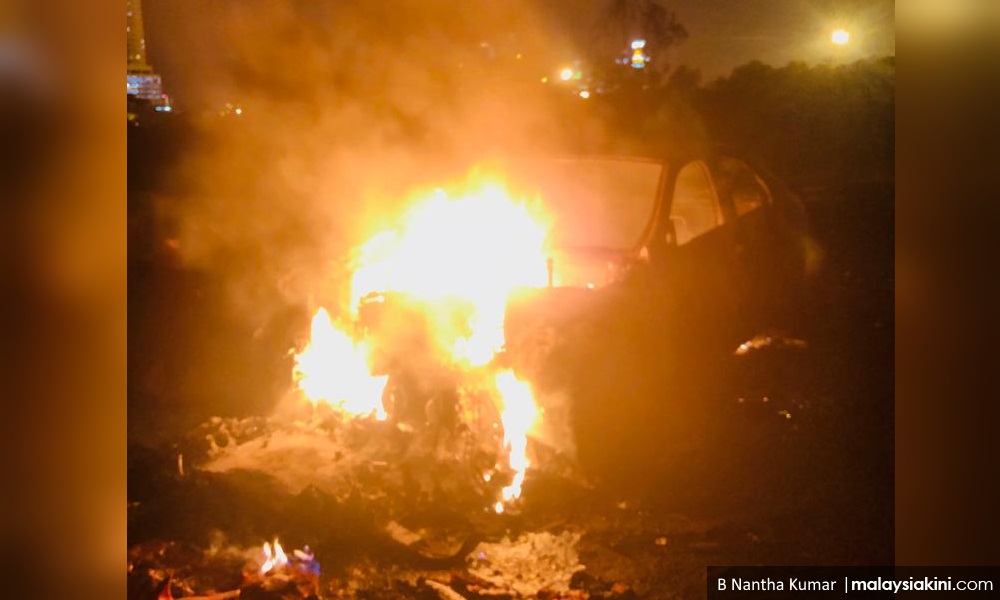
The riots (above) at the Seafield Hindu temple and the unfortunate and tragic death of fireman Muhammad Adib Mohd Kassim is a reminder of the prevailing tense and sensitive climate. There are people who will use this tragic event for their own agenda. The police have arrested four men whom they said were planning to attack temples and churches and kill high-profile individuals to avenge the death of the fireman.
Acts of provocation have been committed, such as placing of a “Datuk Gong” idol and a Hindu deity in a Klang surau. There are also non-Muslims who have insulted the Prophet, religion and race in their social media posts. There are people who want to incite disharmony and conflict. These acts must be condemned in the strongest terms.
We should also be reminded that the Islamic State (IS) recruited more Malaysians than Indonesians, based on the percentage of the total number of Muslims in the respective countries. Malaysians have been involved in terrorist attacks, such as those in the Philippines recently. There are also terrorist wannabes. They are those who have become radicalised from watching videos of executions and violence. They represent a clear and present danger.
Umno/PAS is turning the knob another notch higher with the planned nation-wide tour. The stakes have become higher.
There were no outward celebrations on the night of May 9, 2018, for fear they may give an excuse for acts of violence to disrupt the change of government. A year on, we have become blasé from hearing the often repeated inflammatory ethnoreligious language used by our politicians. We may not be as alert or cautious of the simmering tensions stirred by the incendiary rhetoric and the impact of the recent politically charged events as we should be.
Many may dismiss the idea of genocide in Malaysia as too remote. It must be reminded that genocide does not happen overnight or in a vacuum. Gregory H Stanton, Research Professor in Genocide Studies and Prevention, School of Conflict Analysis and Resolution, George Mason University has listed 10 stages of genocide in Genocide Watch:
1. Classification; 2. Symbolisation; 3. Discrimination; 4. Dehumanisation 5. Organisation; 6. Polarisation; 7. Preparation; 8. Persecution; 9. Extermination; and 10. Denial.

From the recent events listed above, we are more than halfway down the stages towards genocide: racial classification and symbolisation; open and systemic discrimination; polarisation and dehumanisation. We are at polarisation, only one stage away from persecution and extermination. The odds of moving further down the spiral are too close for comfort. This is because the political entrepreneurs, in their strife to outbid their competitors to win Malay support, may not be able to resist the temptation to take further strategic action that will exacerbate matters.
After nearly half-a-century of NEP’s implementation, ordinary Malays remain the largest group at the bottom of the economic pile. Despite the billions of ringgit spent and the wide-ranging extent of the NEP and bumiputera agenda programmes, the BN government has been unable to create a meaningful and dynamic class of bumiputera entrepreneurs. This is because of wide unrestrained discretionary powers, the opaque system of awarding contracts through direct negotiations and lack of accountability. They have spawned the scourge of political patronage and rent-seeking. This has led to state capture of the government by BN elites. As a consequence, the objectives of the NEP and the bumiputera agenda remain a never-ending story. To retain the benefits exclusively for themselves, the BN elites have continued policies of social fragmentation and social exclusion. They resisted and thwarted all efforts to rectify the flaws and weaknesses of the NEP and the bumiputera agenda.
The GE14 results caught the political entrepreneurs/elites by surprise. During this transition period the elites are mobilising Malay support for Umno/PAS to regain political power. There are also attempts by some of these elites to change labels to come under the new umbrella of Harapan. In essence, they are jockeying to maintain their influence and control, either as BN elites or Harapan elites.
Other than the erstwhile BN political elites (who are now mobilising support to regain power), the economic elites and bureaucratic elites are not subject to elections. They retain their influence after GE14. The ability to overcome elite resistance is an important process for successful regime transformation. These elites will, at all costs, prevent Harapan from implementing the reform agenda. If they cannot derail the changes, then they will wage a war of attrition to delay implementation until the next general election. This is because such reforms will put an end to their nefarious activities and to their very existence. This is the elites’ dilemma. Therefore, they have put out the clarion call to rally round the flags of divisive politics.
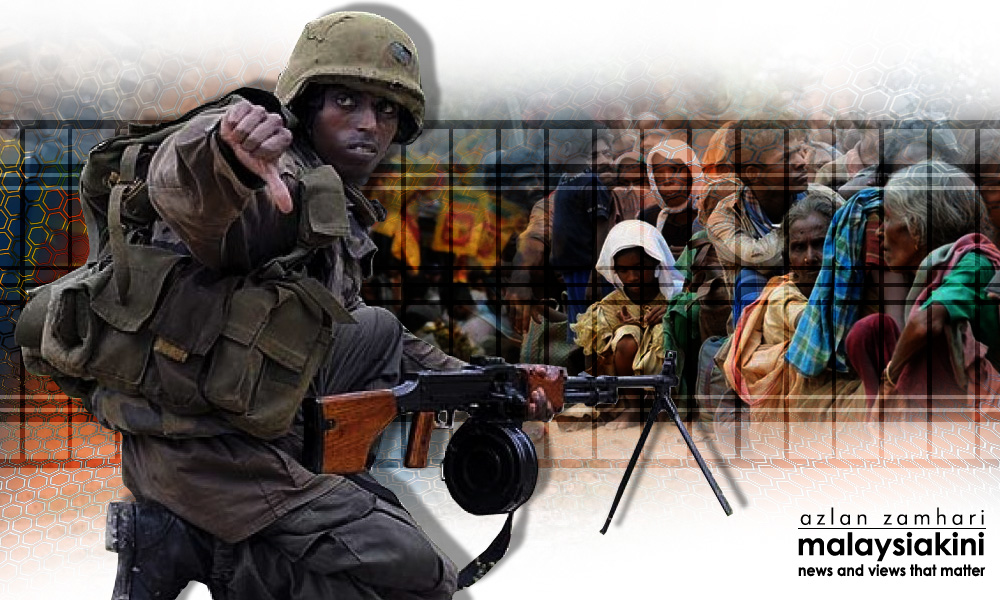
In many of the countries where ethnic conflict erupted, extremist factions chose to take certain strategic actions, the impact of which led to inciting violence. The chances of the elites taking this strategic decision are the cause of our concern.
James D Fearon and David D Laitin, both professors of political science at Stanford University pointed out in their publication, Violence and Social Construction of Ethnic Identity, that large-scale ethnic violence is provoked by elites seeking to gain, maintain or increase their hold on political power. One of the features that the two political scientists have noted is that internal conflicts between extremists and moderates belonging to the same ethnic group spur leaders or dissidents to provoke violence with members of the "out-group". This is done to increase support for the elites and shut out support for the moderates.
The two political scientists have given examples of the rhetoric and action taken by the extremists that eventually led to ethnic conflict. Malaysians will find they have an eerily familiar ring to what our local politicians have been saying:
The Hutus rationalised that the Hutus were, “the only legitimate inhabitants of the country” in Hutu demographic majority Rwanda, that democracy equals rule by Hutus which equals exclusion of Tutsis from political power; Hutu extremists tried to cast the Tutsis as purely evil and Hutu moderates as Tutsi stooges.
In 1992, two years before the genocide, Hutu moderates negotiated a formal power-sharing deal with the multi-ethnic constituencies representing Tutsi interests but Hutu extremists led by the president’s wife sent death squads to the northwest regions where they were strong, killing 300 Tutsis in six days of violence to forestall the implementation of the accords.
Despite Hutu extremists warning the Rwandan president not to implement the power-sharing deal, the president gave in to international pressure to implement the accords at a meeting in Dar es Salaam, Tanzania. As he returned, his plane was shot down. The extremists staged a power grab and implemented the final solution. During the genocide, in addition to Tutsi deaths, some 10,000-30,000 Hutu intellectuals with moderate leanings were killed by the Hutus;
In Sri Lanka, when President Jayawardene began negotiating with the Tamils, the streets in Colombo were rife with rumours that he was really a Muslim or even a Tamil. In the eyes of extremists, his regime was not killing enough Tamils. Fear of Sinhalese extremists, rather than Tamils, motivated Jayawardene.
In 1992 the leader of the Croatian Democratic Union in Bosnia was dismissed on the grounds that he was “too much Bosnian, too little Croat.”
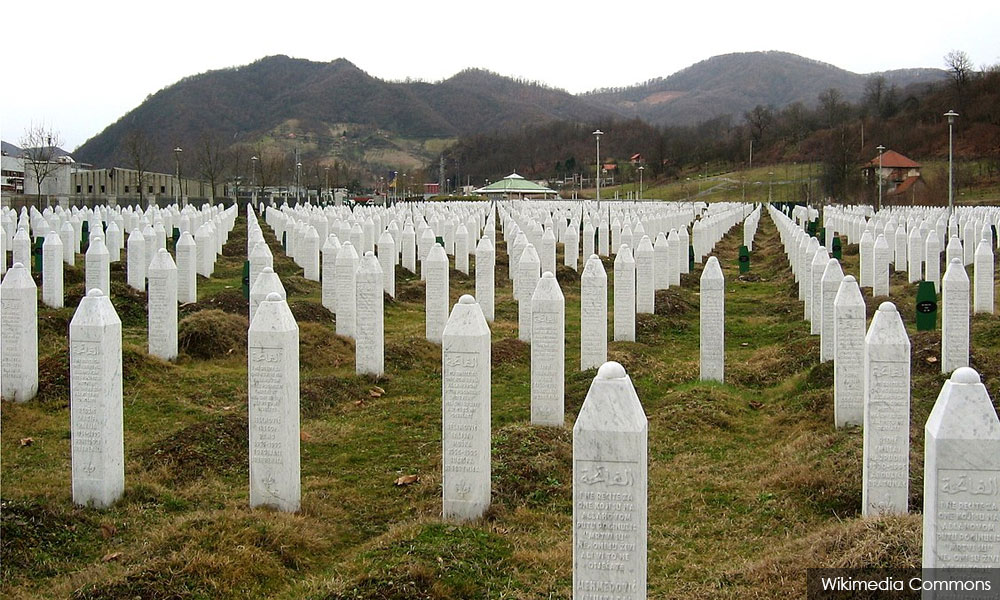
Studies by political scientists indicate that ethnic violence follows from political strategies of political entrepreneurs seeking to gain power by provoking violence against the Others. We must be alive to this danger in the prevailing political climate in Malaysia. It is hoped that Umno/PAS will lower their rhetoric, exercise restraint or reduce their efforts to mobilise support using ethnic/religious issues. Harapan must, in the meantime, take appropriate steps to counter these issues. I will share some of my ideas in Part 3.
WILLIAM LEONG JEE KEEN is PKR's member of Parliament for Selayang. - Mkini



No comments:
Post a Comment
Note: Only a member of this blog may post a comment.